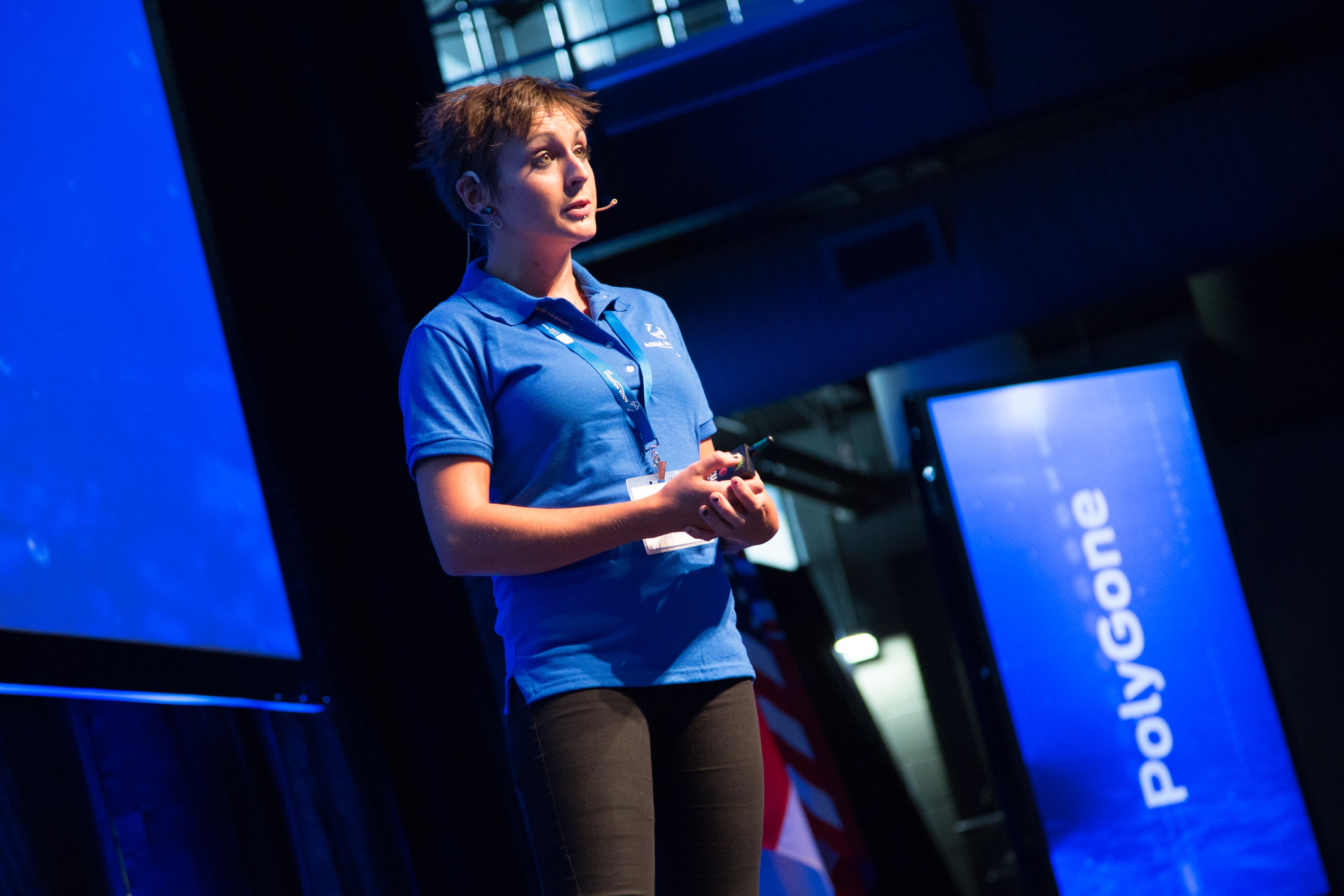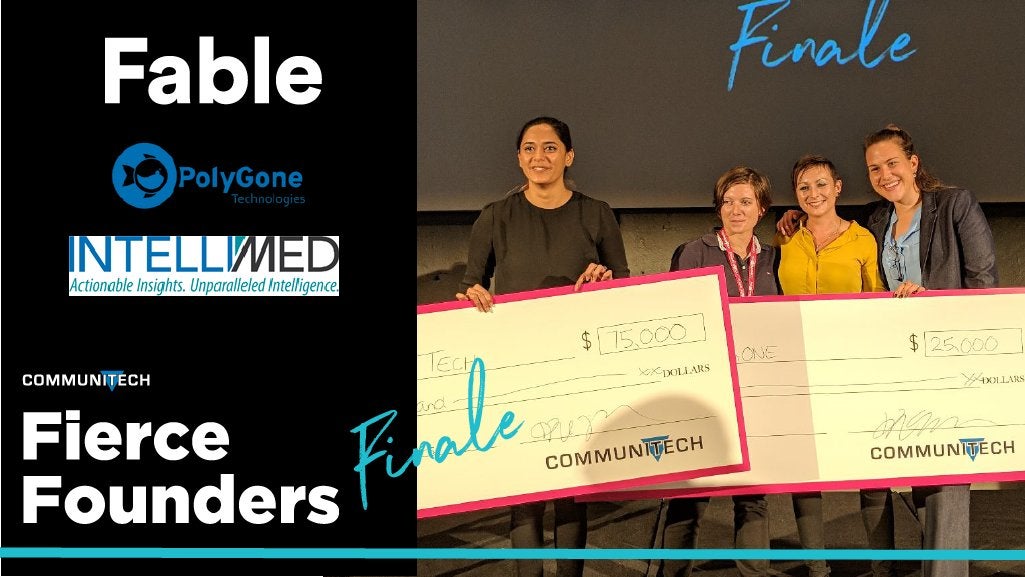Where it started

Once they got into the lab space with Velocity Science, Nicole designed a reliable, controlled lab environment to test materials and existing product options. "There weren't a lot of resources to grow from - this is still a relatively new problem so we had to take what we could find and make it work for our conditions and after a lot of hours, we found a material that showed promise", recalls Lauren. The advisors at Velocity played a key role in getting things off the ground as well, especially Adrien, the Business Advisor for Science companies. "I knew that we had something exciting and that we had to work hard to turn our findings into a business - so I learned all I could about running a business and jumped in!", said Lauren.
What is PolyGone?
PolyGone Technologies is a female-founded company working to stop the microplastic problem by mitigating pollution and contamination from microfibres - the predominant source of microplastic pollution. They create novel filtration materials that can be applied in a variety of ways, as a washing machine filter, as beverage filtration, or as a form of water treatment. They are starting with washing machines to prevent further release of microfibres into our environment.

How does plastic affect our waterways?
Plastic does not biodegrade as natural materials do. Instead, it breaks down into smaller and smaller pieces of plastic, but does not fully go away or integrate back into the natural environment. Additionally, it collects all sorts of chemicals and toxins on its surfaces. These pieces are eaten by wildlife (like fish, mussels, and so on) and increase in concentration as they travel up the food chain. What's worse, microfibres are being found in our drinking water supply - in tap water, bottled water, and even processed beverages. Honey, salt, and more have also been found to contain microfibres. Water is connected to everything, and with this persistent contaminant, microfibres are connecting to it all as well.

While it would be great to transition plastic out of clothing entirely, what we can do is try to prevent the release of microfibres into our natural environments, as well as our food and beverages. "What I'd love to see is regulations on microfibre emissions, just as there are for carbon emissions, to push industries to take responsibility for this problem and to help consumers to be aware of the issue and their contributions", says Lauren.
What's next?
Through their progress with Velocity, they now have a great business plan, support from a lot of different competitions and grants, interested companies to work with (small and large), and are running some really exciting projects in their lab, with the help of their first co-op student!
Polygone says that sharing awareness of the microfibre problem and educating yourself are great ways to get involved! There are small steps that individuals can take to reduce their microfibre emissions, like only washing in cold water and washing less often! Avoiding synthetic materials also helps as well. Until PolyGone's products are on the market, you can also help by signing Polygone's petition to ask governments for regulations and ratings for microfibre emissions!